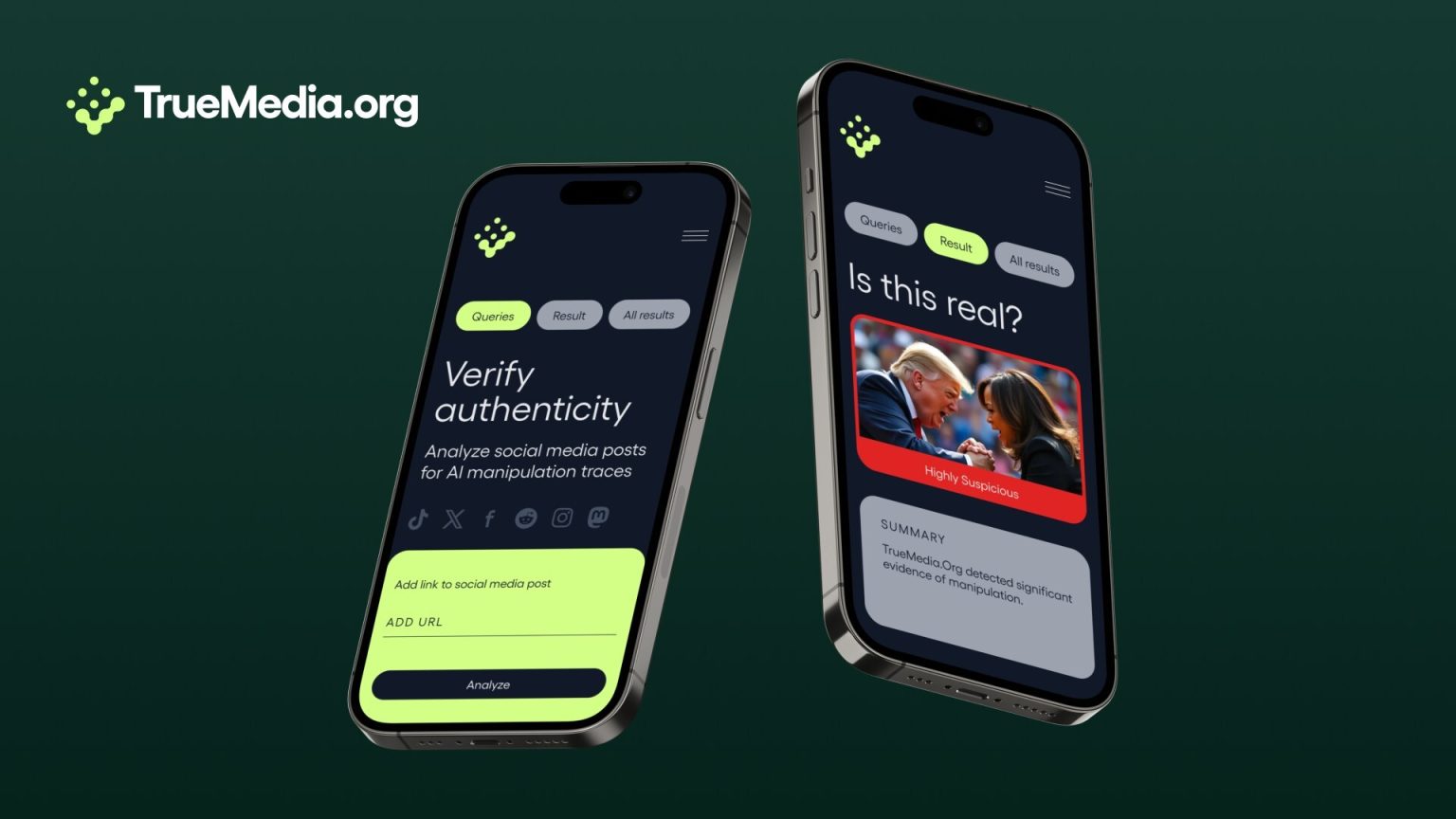Summarize this content to 2000 words in 6 paragraphs
TrueMedia.org used homegrown AI technology and tools from partner organizations to help media organizations and the public identify AI-generated deepfakes. (TrueMedia.org)
TrueMedia.org, the Seattle-based nonprofit that offered AI tools to identify and combat deepfakes in the lead-up to the 2024 elections, says it will shut down its online service after Jan. 13 and open-source its technology.
Oren Etzioni, the University of Washington professor and longtime AI specialist who founded and led TrueMedia.org, said the high cost of maintaining the service played into the decision. The group considered raising additional funding, or reinventing itself as a for-profit entity, but that wasn’t in line with its charter.
“This just seemed to be a natural ending point,” Etzioni explained via phone.
He noted that TrueMedia.org was conceived as a 2024 project, and said the decision to release the technology as open-source was ultimately determined to be the highest-impact outcome, under the circumstances.
Oren Etzioni foundedTrueMedia.org.
Etzioni, the former CEO of the Allen Institute for AI, is also a serial startup founder, having launched and ultimately sold a series of AI and technology ventures: MetaCrawler (acquired by InfoSpace), Netbot (Excite), ClearForest (Reuters), Farecast (Microsoft), and Decide (eBay).
He wasn’t ready to divulge exactly what he’ll be doing next, but he dropped a big hint — saying that he’ll be returning to the for-profit world for his next venture.
“It’s too exciting a time not to be doing an AI startup,” he said.
TrueMedia.org operated with a small engineering team, numbering about 15 people, including employees, volunteers and interns. It built its own technologies, including six in-house detection models, and partnered with other AI providers. Some of the interns have already gone on to land jobs with prominent companies and institutions.
The nonpartisan organization, which attracted high-profile media attention from The New York Times and others, was backed by Uber co-founder Garrett Camp through his Camp.org nonprofit foundation.
In a message informing users about the decision, TrueMedia said it “accomplished our foundational mission of providing state-of-the-art deepfake detection in elections worldwide, culminating in the US election in November.”
Users will be able to download their data prior to the service shutting down.
The message said TrueMedia’s technologies were used to analyze more than 60,000 images, videos, and audio clips. Its tools were launched initially in April for media organizations and released more widely to the public in September.
At the same time, Etzioni said the disaster he originally foresaw didn’t happen.
“There wasn’t the tsunami of disinformation that we were worried about,” he said. “There was plenty of generated AI, plenty of deepfakes, but not quite at the level that we expected.”
In that way, Etzioni acknowledged, he was wrong.
“But I also want to point out that we still have an unsolved problem,” he added. “As a society, we are not prepared for a large-scale, concerted, generative AI attack. It did not materialize in 2024. That doesn’t mean that it’s not coming.”












